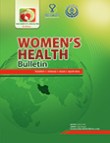Effectiveness of Family Empowerment Therapy Based on Self-Compassion on Self-Care and Glycosylated Hemoglobin in Female Patients with Type 2 Diabetes Mellitus: A Randomized Controlled Clinical Trial
Diabetes can be successfully controlled by metabolic, psychological, social, and interpersonal factors. The present study aimed to determine the effectiveness of family empowerment therapy based on self-compassion on self-care and glycosylated hemoglobin in female patients with type 2 diabetes mellitus.
In a randomized controlled clinical trial with control group, pre-test, and post-test, 60 women with type 2 diabetes referred to the endocrinology department of Imam Hossein Hospital in Tehran province from December 2018 to April 2019 were randomly selected from the 73 patients narrowed down according to the inclusion criteria. Afterwards, they were randomly assigned to experimental and control groups. The experimental group (n=30) was treated with family empowerment therapy based on self-compassion for eight weekly 90-minute sessions while the control group (n=30) received usual hospital treatments. Data collection instrument was Summary of Diabetes Self-Care Activities; glycosylated hemoglobin measurements were performed in three phases of baseline, after intervention, and three-month follow-up and analyzed by multivariate repeated measures analysis of variance and Bonfroni post-hoc test using the SPSS-21 software.
The results of repeated measures analysis of variance showed significant differences after the intervention between the experimental and control groups regarding self-care (P0.001=, F=561.086) and glycosylated hemoglobin (P=0.001, F=304.953); furthermore, comparison of the means indicated the effectiveness of the treatment in improving self-care and reducing glycosylated hemoglobin levels in the experimental group compared to the control group. Moreover, the Bonferroni test results showed that in the pretest stage, there was no significant difference between the two groups in terms of self-care (P=0.447) and glycosylated hemoglobin (P=0.887); however, in the post-test and follow-up stages, the two groups showed were significantly different concerning self-care (P=0.001) and glycosylated hemoglobin (P=0.001), implying the effectiveness of the intervention and the sustainability of its effects.
The results of the present study revealed that family empowerment therapy based on self-compassion can be effective in improving self-care and reducing glycosylated hemoglobin in women with type 2 diabetes.
- حق عضویت دریافتی صرف حمایت از نشریات عضو و نگهداری، تکمیل و توسعه مگیران میشود.
- پرداخت حق اشتراک و دانلود مقالات اجازه بازنشر آن در سایر رسانههای چاپی و دیجیتال را به کاربر نمیدهد.



